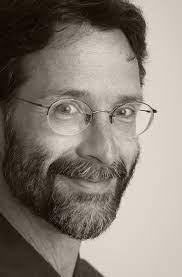
A great fan of the writer Brian Doyle’s—taken by brain cancer in 2017—I was happy to see the posthumous release of his essays, One Long River of Song, by Little, Brown, and Company (2019). I did not realize that Doyle was first and foremost an essayist, though also an accomplished novelist, poet, and “proemist” (his playful term for a hybrid version of prose and poetry).
Reading the collection, I quickly bonded with Doyle’s “voice” and felt akin to him and his. To give you a flavor of his style (he is a big fan of anaphora and polysyndeton, for instance), here is an essay anyone who has brought kids to church can identify with. It is called “What Were Once Pebbles Are Now Cliffs.”
**********************************************
“I am standing in the middle pew, far left side, at Mass. We choose this pew when possible for the light pouring and puddling through the stained-glass windows. The late-morning Mass is best because the sun finally made it over the castlements of the vast hospital up the hill and the sun has a direct irresistible shot at the windows and as my twin sons used to say the sun loooves jumping through the windows and does so with the headlong pleasure of a child.
“They used to be small enough to choose different sun-shot colors on the floor and jump from one color to another, my sons. They would do this before Mass and after Mass and occasionally during Mass on the way back from being blessed by Father John in the years before their own First Communions. Sometimes they would rustle and fidget impatiently in the pews and fiddle with missals, and fold up parish newsletters into ships and trumpets, and bang the kneeler up and down, until they were arrested by the wither of the maternal glare, but then came Communion, which meant Father John bending down from his great height like a tree in a storm and blessing them with his hand as big as a hat on their heads. They loved that, and loved whispering loudly Hi Johnny! to him, which would make him grin, which they counted as a win, to make the sturdy dignified celebrant grin like a kid right in the middle of Communion!
“When they were three and four years old they used to stand on the pew next to me and lean on me as if I were a tree and they were birds. Sometimes one would fall asleep and I would sense this through my arm and shoulder so that when I sat down I would be sure to haul the sleeper down safely. Sometimes they would lean hard against me to try to make me grin like Father John grinned during Communion. Once I discovered that they had conspired before Mass to lean on Dad so hard that they would squish Dad! and he would get six inches taller right there in the church!, wouldn’t that be funny? Sometimes they would lean against me just from a sheer simple mammalian affection, the wordless pleasure of leaning against someone you love and trust. But always I was bigger and they were smaller, then.
“Then came years during which there was no leaning because generally they were leaning away from their parents and from the church and from authority in all its figments and forms and constitutions, and generally they sat silent and surly and solitary, even during the Sign of Peace, which distressed their parents, which was the point.
“But now they are twenty and one is much taller than me and the other is much more muscular. One is lanky and one is sinewy. One is willowy and the other is burly. And the other day in Mass I leaned against one and then the other and I was moved, touched, pierced down to the fundaments of my soul. What were once pebbles are now cliffs. They are tall and strong and stalwart and charming and at the Sign of Peace people in all directions reach for them smiling. When I lean against them they do not budge and now I am the one leaning against men whom I love and trust and admire. Sometimes I lean too hard against them on purpose just to make them grin. Sometimes by chance I am the first one back from Communion and I watch as they approach, wading gracefully through the shivered colors of the sun streaming through the windows. Time stutters and reverses and it is always yesterday and today. Maybe the greatest miracle is memory. Think about that this morning, quietly, as you watch the world flitter and tremble and beam.”
